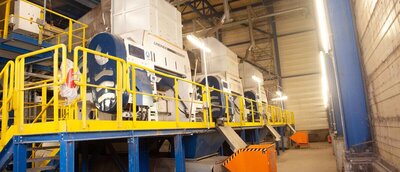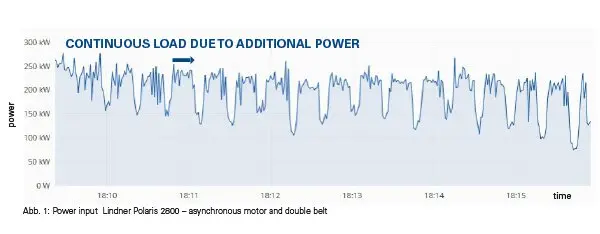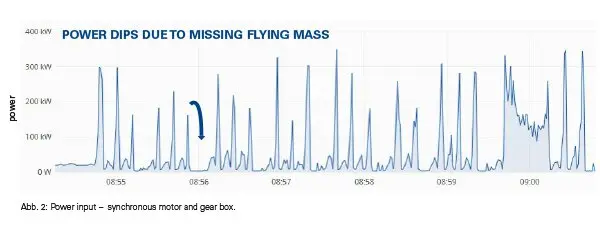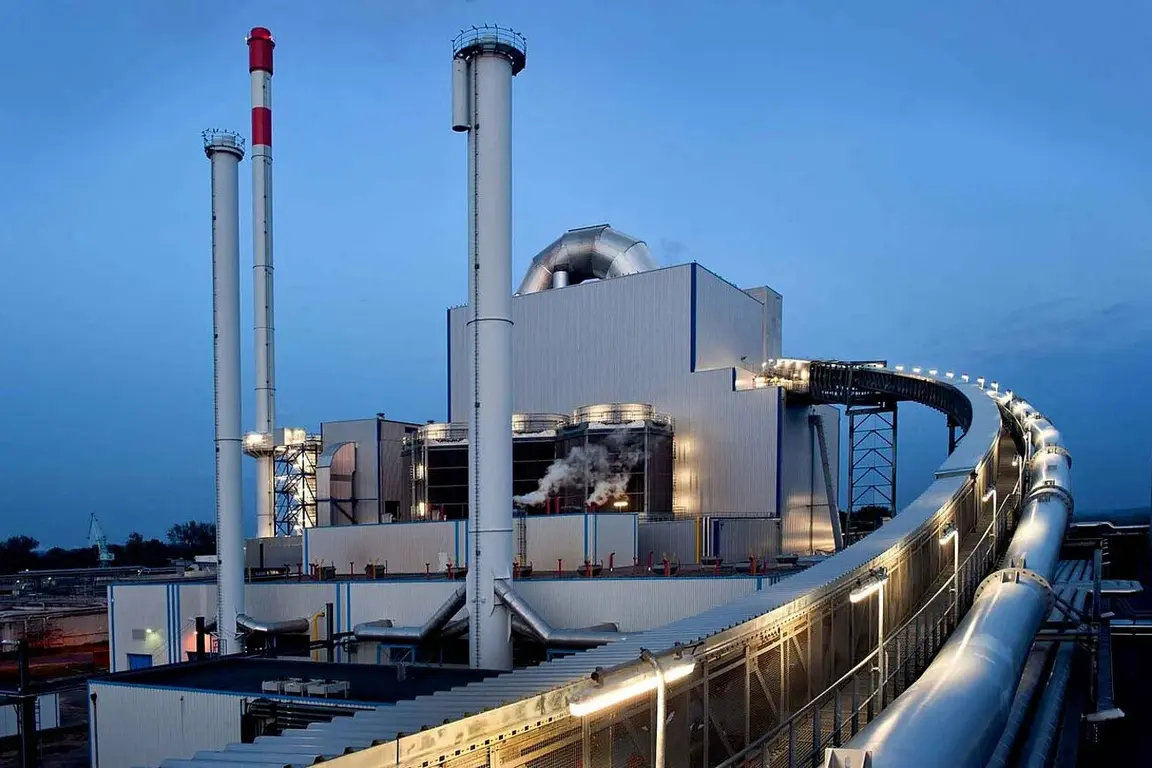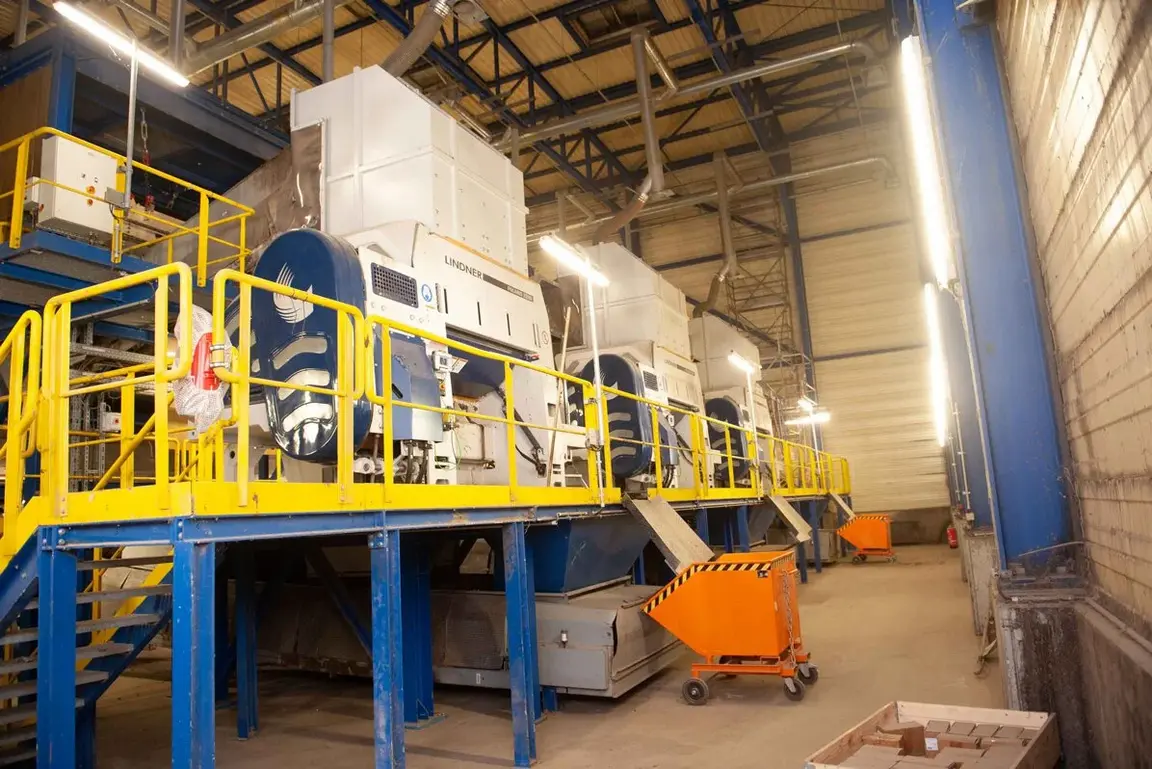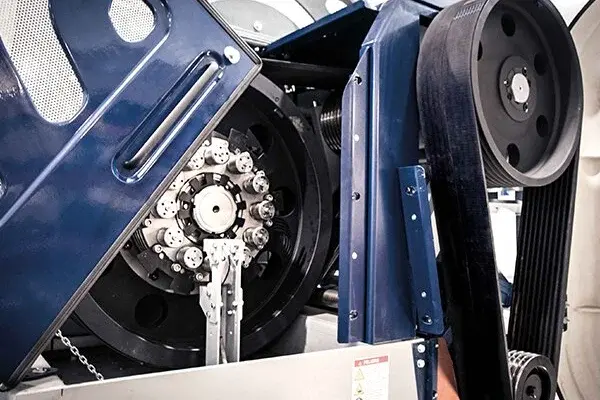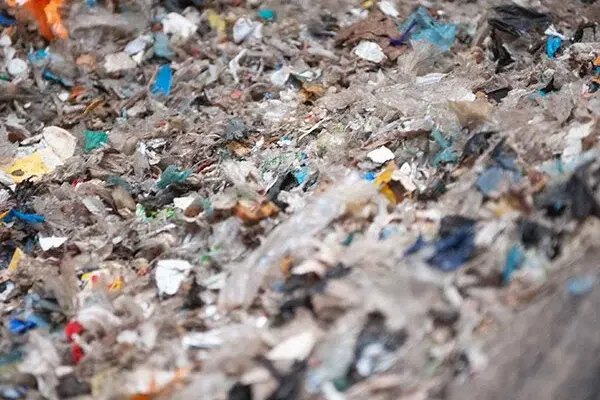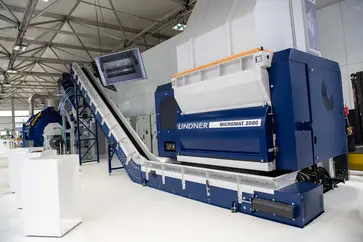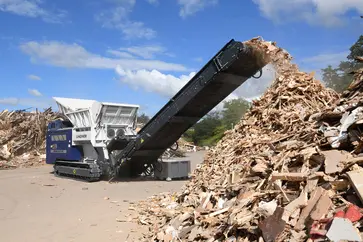Schwedt (Germany), November 2021. Nestled at the edge of the Lower Oder Valley National Park, the Schwedt power plant, which belongs to the EEW Energy from Waste Group, supplies the local paper industry with electricity and process steam. In line with circular economy principles, the plant recovers paper mill, commercial and industry waste. To optimally prepare the waste for the fluidised bed boiler, the company relies on quality from Lindner.
Kraftwerk Schwedt GmbH & Co. KG has specialised in recovering energy from waste since 2010. Highly calorific SRF is produced from specially processed municipal solid, commercial and industrial waste. The power plant, in turn, generates electricity, heating and process steam which is used to supply Germany's third-largest paper mill, whose waste is also used for energy recovery. Specifically, the Schwedt power plant generates 175,000 megawatt hours of electricity and 602,000 megawatt hours of process steam annually.
The high demands placed on calorific value and throughput require powerful and energy-efficient recycling machines. Therefore, in spring 2020, the Schwedt power plant decided to replace a stationary shredder that had synchronous technology and gearbox with Lindner’s Polaris 2200 and it’s tried-and-tested asynchronous technology, countershaft drive and flywheel energy storage. The Polaris performed much better, offered improved technical availability, mainly due to its drive concept, and led the company to replace another two shredders in 2021 with Lindner’s Polaris 2200.
According to an independent report by the University of Leoben (2017), a shredder drive system with an asynchronous motor is more efficient than a drive system with a synchronous motor and produces up to double the output per machine depending on the input material. The drive system with the belt-driven asynchronous technology ensures optimum utilisation of the shredder’s capacity, which in turn leads to lower
production costs (€/t).
